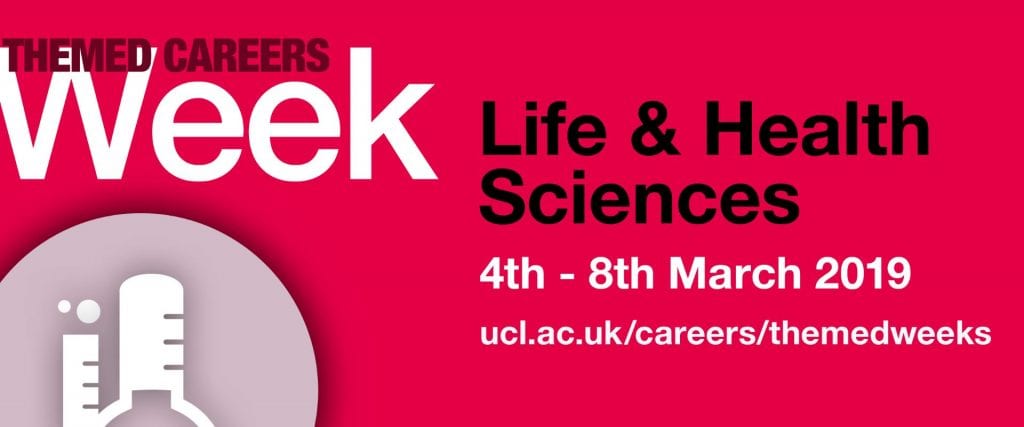One of our Careers Consultants recently interviewed two candidates currently on the NHS Scientist Training Programme. We’re sharing these interviews to help inform you about the value and opportunities available in the programme, and give you real-world insight into the experiences of current candidates. Last week we posted our interview with Aled Jones, a finalist in the Bioinformatics stream. Read on for our interview with Heidi Kuoppama, during her first year on the Genetics Stream.
Applications for the NHS Scientist Training Programme have just opened. Find more information and apply here.

What made you apply to the STP?
I have an undergraduate degree and two masters degrees in science and I wanted to work in a lab, so in 2009 I started on the PTP, which is a two-year practitioner programme for technicians within the NHS, at the Cytogenetics lab at Guy’s hospital. I then spent another two years working as a technician within the same lab, and at that point I felt I wanted to do more; as a technician I was largely involved with lab and administrative work, with only a bit of analysis and interpretation. I applied to the STP because I wanted to gain a more in-depth understanding of genetics, and the science behind it, and I wanted to be able to interpret and report patient results.
What does your job involve?
As a qualified healthcare scientist, the bulk of my job will be interpreting and reporting patients’ results. The amount of labwork I’ll do will depend on how each particular lab is organised, but generally it will only be a small part of my job – maybe 10 or 20%. I’ll need to understand and be aware of what’s going on in the lab to be on hand for troubleshooting if something goes wrong. But most of the lab-based work might be when clinical scientists get involved in introducing a new test to the lab, or trying to improve existing techniques, R&D work.
As a trainee, I’m currently in the process of writing up my evidence for each of the competencies I have to fulfil as part of the training program, which involves a lot of sitting in front of a computer. But this will vary throughout the course of being a trainee – at other times I’ll be in the lab more. During the first year we do four rotations of three months each, across different labs; one in our own specialism, then three others. The three I chose were cellular specialisms; Cytology at St Thomas’, Reproductive Science at Guy’s, and ?!
As part of the STP you also study for an MSc in Healthcare Science. At the start of the first year we had an induction day where I got to meet lots of different STP trainees across all of the different disciplines, and we also had a week’s contact learning in Nottingham, where I was with all of the other Genetics trainees in my year. Later in the training I’ll also work on a research project relevant to my specialism, one that will hopefully benefit my lab.
What was the application process like?
Very competitive – it was a lot of work! I had NHS and PTP experience, as well as two Masters degrees, which was a good start, but I still applied twice! The first time I got to interview but wasn’t quite good enough, then I was successful second time around. The first step of the process is answering short essay-style questions. Answering those fully to make sure you stand out can take days. Then there are online reasoning tests, and if you don’t pass them you don’t get any further. I looked at a few example questions beforehand and thought it seemed quite easy, but some of the questions were very tough in the real test, mostly because you’re so pressured for time.
The next stage is the interview, which is a bit like speed-dating! There are four different tables with two interviewers at each, and all the candidates cycle through them in turn, changing table when the bell sounds. In my year there was a general science stand, two specialism-specific stands (so for me that was genetics), and then a stand on leadership, healthcare science and the NHS in general. You really get grilled on these stands, so you need to know a lot about what’s currently going on in your discipline, and in the NHS in general, and you need to be prepared to answer technical questions and be shown data. Then you’re given a mark for your performance on each stand, your scores are all added up, and you’re ranked against all the other candidates. Your rank will determine whether you’ll get a training place, and where that place will be.
Did you get your first choice of training location?
Yes I was lucky enough to get my first choice, which was the lab I already worked in. But I saw a few people who had to move across the country to take up places they were offered, which might not have been their first, second, or even third choice, so if the STP is something you really want to do, you may have to be flexible on location during your training.
What kind of experience is needed to get onto the program?
It’s a graduate scheme, so in theory all you need is a relevant undergraduate degree, however, it’s very competitive, and there are many applicants that meet the minimum criteria. In my intake I think there were about 16 Genetics trainees, and only one of them is a fresh graduate from university. About half of them have PhDs, and maybe around a third have worked as technicians in the NHS or in research.
What do you enjoy most about the STP so far?
I get to make a difference and help people through science. And I’m being challenged mentally; I have to innovate, and try to take my lab forward to provide a better service to patients, which is awesome.
What are the downsides?
Juggling the academic and the practical side of the training can be difficult, and you have to sacrifice your own spare time to get everything done. However, if you’re really passionate about the job, this isn’t too bad. Another key downside for people who like labwork would be the lack of lab time involved. I actually really enjoyed being in the lab when I was a technician, so I’ll miss it, but I’ve come to terms with it now!
The job can also be stressful at times. There’s a lot of work and tight deadlines to meet, and if something goes wrong, as scientists we have to be able to find a solution, otherwise we’ll be holding up the important work of the lab. But of course that’s also what makes it rewarding, how crucial the work we do is.
What advice would you have for anyone trying to get onto the STP?
I was lucky because I’d worked in NHS labs before, and although that’s not the case for all successful trainees, I would advise trying to get some NHS exposure, even if it’s just visiting a lab for a few hours. Talking to healthcare scientists, and reading relevant journal articles, will also help you to keep on top of developments in your field and in the NHS, which is important in the interview. I would also recommend practicing before taking the online tests, as you can definitely become quicker with practice.
 Close
Close





